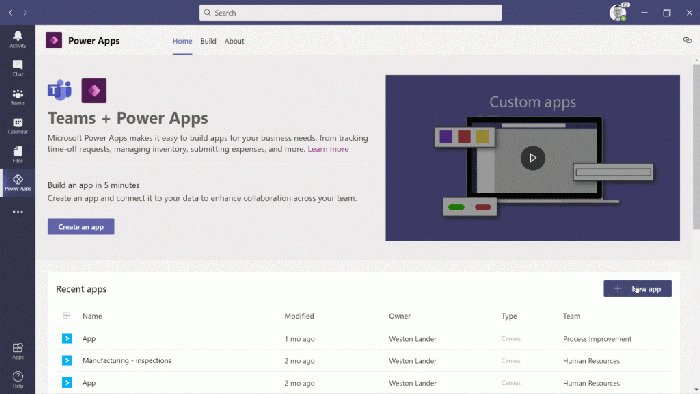Microsoft Rolls Out Teams Extensions, Low-Code Tools to Create BotsMicrosoft Rolls Out Teams Extensions, Low-Code Tools to Create Bots
The first of 19 Teams Meetings app extensions are now available.
November 19, 2020

Microsoft has begun rolling out its new Teams meetings extensions and low-code tools to simplify the creation of chatbots. The company this week began releasing some of the new extensions and features and said others will appear this month.
Active usage of Teams has continued to rise this year with the latest tally of daily users topping 115,000. Microsoft previewed the new extensions and features at its Ignite virtual conference, held in September. The latest updates promise to make it easier for partners to customize Microsoft Teams meetings experience for customers. Partners with developers skilled in the Microsoft Teams Toolkit for Visual Studio and Visual Studio Code can create custom chatbots. But many partners don’t have benches of software developers, or they have customers that want to build their own chatbots.

To enable those partners to build chatbots into Microsoft Teams, the company has built that capability into its Power Platform.
“Microsoft Power Platform provides low code tools to build apps, workflows and chatbots, as well as deploy and manage them — all without leaving Teams,” according to a post by Nicole Herskowitz, general manager of the Microsoft Teams organization. Herskowitz noted that the Power Platform is now tailored for Microsoft Teams with the new:
Power Apps for Teams: Built into Teams, an embed graphical app studio provides a low-code tool that lets partners and customers build and manage apps. It is suited for those with few or no programming skills.
Power Automate app for Teams: A simplified workflow designer and templates that automates routine tasks.
Power Virtual Agents app for Teams: A tool with an embedded bot studio, it enables non-programmers to create conversational bots for various functions such as IT helpdesk, operations FAQs and HR issue resolution.
Microsoft Dataverse for Teams: The underlying low-code data platform for building and deploying apps and chatbots in Teams. Dataverse is also designed to ease application life cycle management and provide more control over data uses to build apps, bots and workflows in Teams.
Microsoft Teams Meetings App Extensions
The extensions include 19 popular SaaS-based productivity and project management apps enhanced to with Teams meetings. Among those available is Asana, a project management and planning tool. Herskowitz noted that many customers use Asana in Teams chat and channels to manage projects and track their tasks.

Microsoft’s Nicole Herskowitz
“Now you can add the Asana app into your Teams meeting invite so that during a meeting, you can easily create new action items,” she said. “After the meeting, everyone can see the action items in the project plan and start working through them.”
Also now available is an update to Microsoft Forms that enables users to conduct Polls in Teams Meetings.
“Whether you are running a large-scale training session, leading your monthly all hands, or teaching in a remote classroom, Polls in Teams meetings enables meeting presenters to get real-time feedback and turn attendees into active participants,” according to a post by Microsoft product marketing manager Melinda Hu.
Microsoft MVP and consultant with Jumpto365, Matt Wade, posted a demo of the polling feature.
“It turns out they’re very simple and easy to use, but also not super robust,” Wade noted. “Meeting presenters manage the questions and anyone in the meeting (presenters and attendees) can respond. There are also some limitations you’ll want to be aware of as you dive into the world of meetings polls. But overall, these can be really useful for getting quick, wide-ranging answers in your everyday meetings.”
Other SaaS extensions from partners that are now available in the Microsoft Teams apps store include Decisions, Pigeonhole, Polly and Teamflect. Set for release within weeks are Buncee, HireVue, Lucid Agreements, Monday.com, Phenom, Range, Slido, Soapbox, Talview, Wakelet and xMatters.
Herskowitz noted that developers can integrate these and other apps in Microsoft’s Teams store to build configurable tabs, chatbots and message extension applications. Teams is an extensible platform with a broad set of capabilities and entry points, “so you can also easily create custom apps,” she said. One such example is electronic medical records software provider Epic Systems, which recently built a connector to Teams, enabling HIPAA and HITECH compliant telehealth sessions.
About the Author
You May Also Like


